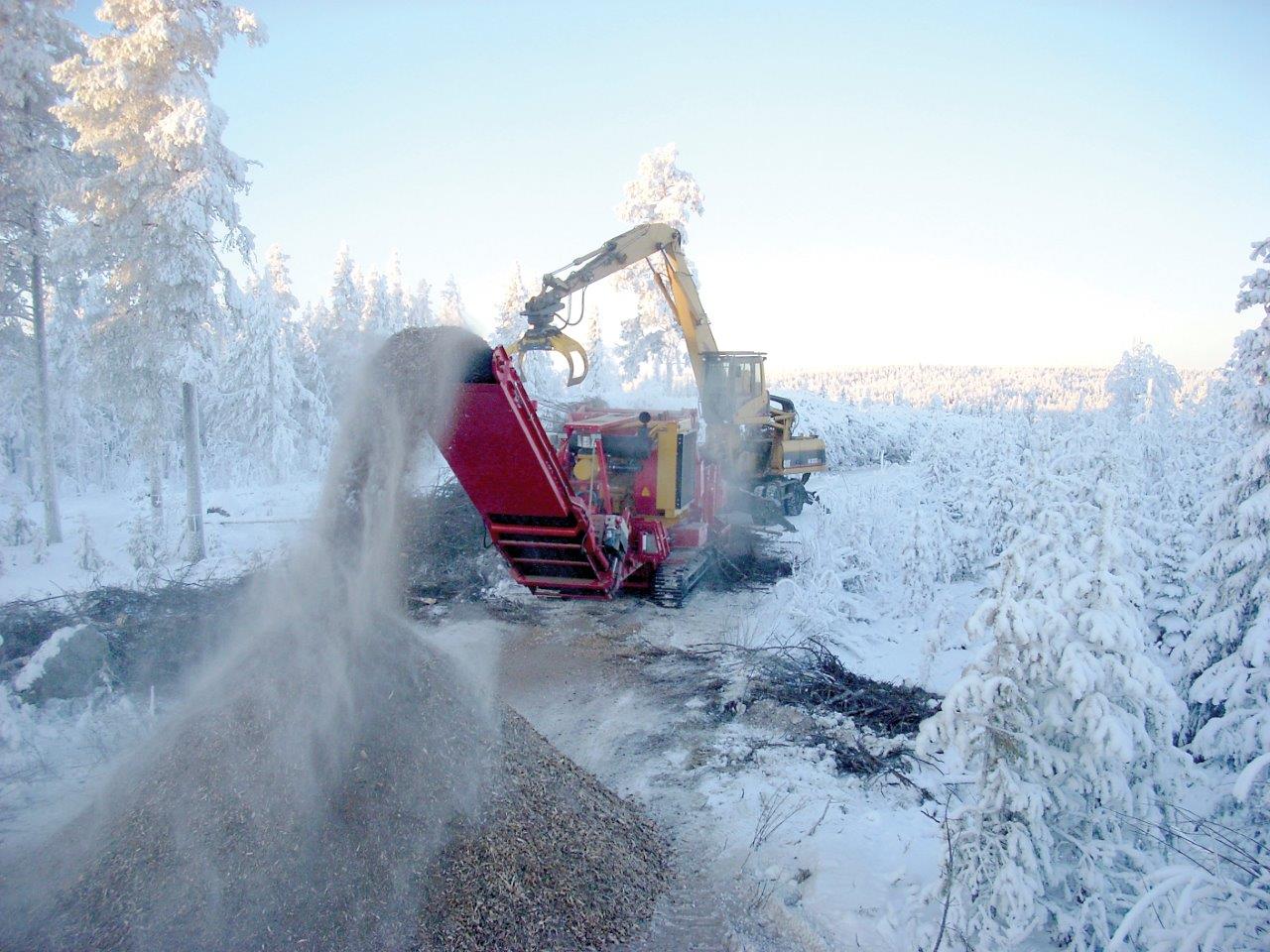
When the temperatures begin to dip, it’s time to ready your machines for cold weather. Follow these tips to keep your grinding equipment in great operating condition all season long.

- Install the correct lubricants and condition hydraulic hoses.
Install the correct engine, hydraulic, transmission and final drive lubricants for your machine. Reference your manual ensuring fluid levels and grade are correct. The outer wrapper of hydraulic hoses can crack when flexed in colder temperatures. For best results, apply an arctic hydraulic oil for colder months, and normal machine use will condition the hydraulic hoses.
- Store equipment in enclosed storage facilities and keep fluids at room temperature.
Keep your machine out of the elements when not in use for an easier start and less time spent brushing off accumulated snow. Always keep fluids and oils at room temperature to avoid freezing.
- Use block heaters.
Because it increases the temperatures of the engine and hydraulic fluid. To help speed the warm-up process, block the radiator to restrict cold air from the fan.
- Keep batteries fully charged and warm.
It takes nearly twice as many cranking amps to turn over your battery in cold weather, so keep it charged and warm for easy starting. If you’re working in sub-zero temperatures, keeping the battery indoors at room temperature when not in use may help.
- ALWAYS run the engine until it reaches operating temperature.
Prevent the intake and exhaust valves from sticking by running your engine until it reaches operating temperature before you begin each day’s work.
- Ensure your tires are properly inflated.
Check your tires at the beginning of every work day to make sure they’re filled to the proper amounts.
- Conduct a visual inspection.
Check for cracks, cuts and worn spots on all hydraulic hoses, belts and tires each day before starting operations. Remove any snow, dirt and debris from machine.
- Store Diesel Exhaust Fluid (DEF) properly.
DEF freezes after prolonged exposure to temperatures of 12F (-11C) or lower. Make sure the area you store it is well-insulated. DEF does thaw out, so store the fluid in an appropriate container to avoid bursting during expansion.
- Fill the fuel tank at the end of a shift.
Avoid a frozen fuel tank in the morning by filling up at the end of each day.
